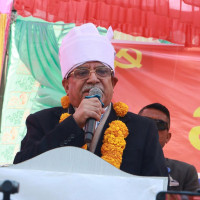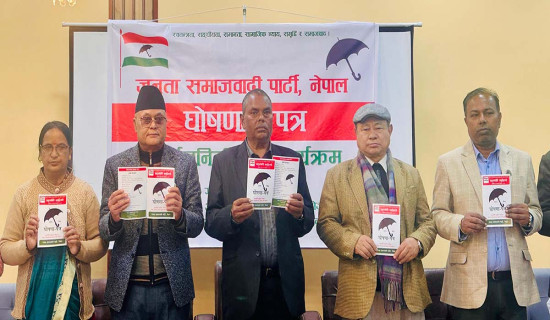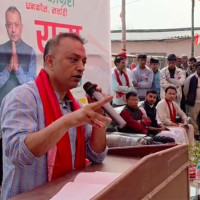- Saturday, 14 February 2026
Implement Inclusive Healthcare System
In the early history, the importance of an inclusive health system used to be seldom raised in health policy discussions and high-level meetings. The focus was largely on expanding curative or treatment services from the hospitals and other health facilities. The national health policy 1991 aimed to expand primary health care services to the rural areas in order to increase access to health care for rural people who faced a wide range of socio-economic, political and cultural barriers in accessing health care.
Later, policy makers made an important departure from a longstanding tradition of health care to community participation in planning and management of health care services at the local level. In different discourses and practices, the dominating biomedical models of health care were largely on the surface. Earlier, the prevailing conventional views of health care had major emphasis on indigenous knowledge, traditional healing, religious beliefs, ritual practices and herbal medicines at large. Of course, one has to ponder the cause and diverse patterns of overwhelming interest and traditional understanding of health care among different social groups living in rural and urban areas.
Health interventions
The impacts of public health interventions on local communities are relatively limited in many cases. More notably, the importance of local culture is largely overlooked. This is inherently problematic in promoting community participation in health care. In the past, new discourses and practices in biomedicine had little to do with the local communities. However, the prevailing context has changed by now. Therefore, it is crucial to explore the social, cultural, economic and political dimensions of the local health care system while implementing health interventions. Inevitably, a clear understanding of local realities and people’s choices always matters while delivering health care services.
Political leaders, health policy makers and bureaucrats tend to argue that a significant transformation has taken place in the health system over the years. Such transformation is visibly noticed in polices and strategic plans, but still less in implementation. There is a heavy influence of international health policies on the national health system. Nevertheless, cross-cutting issues around social inclusion, gender equity, human rights and diversity are gaining priority across health and development sectors. There are some pressing issues that we need to consistently raise and advocate for inclusive health policies at local level.
Local health priorities, practices and provisions are largely determined and constrained by persistent views and understanding of political leaders, policy makers, and health institutions. In addition, there are critical needs to strengthen multi-sector engagement and partnership to ensure easy access to health care for the poor, socially marginalised and vulnerable groups. We need to explore ways in which the interface between local governments and people could be reshaped and harnessed for the benefits of local communities. The roots of health care practices are socially, culturally, politically and historically constructed.
Therefore, our approach to participatory and inclusive health planning needs to be further strengthened with meaningful community engagement to ensure their needs and choices are heard. Surely, this will enhance political accountability of local governments towards a more evidence-informed informed inclusive health system. However, local governments tend to have more emphasis on infrastructure development, roads, transportation, water supply and irrigation. Local politics of allocative, technical and implementation efficiency is always competitive and challenging. But how do they understand an inclusive health system and their role within it? This dilemma is not new.
Needless to say, it is important to assess the reasoning behind their decisions for investments in health care that help enlarge people’s choices for quality health care. In reflecting the history, public concerns and views of health sector reform are inadequately heard and internalised by local governments. In the international arena, advocacy for universal health coverage is gaining momentum. Although still limited, there are a few initiatives that local governments ground their practice in the name of people’s participation by bringing culture and politics into consideration within conventional health service delivery models. For future generations, what kind of awareness and capacity do they need to ensure an inclusive health system at large?
Multi-disciplinary approach to address social and cultural barriers, ensuring an inclusive health system is a fundamental priority. Moreover, health interventions need to be socially relevant and culturally appropriate for diverse groups living in different communities. There is a reasonable margin of success in promoting cultural and gender sensitivity in the provision of health care to ethnic and indigenous groups. During the COVID-19 pandemic, evidence suggests that these groups faced several barriers in accessing vaccines, essential health care and prevention services in the locality.
Basic premise
The basic premise of political economy and health equity has not substantially changed. Giving inclusive health system a new visibility, it is high time for local governments to implement inclusive health interventions that empower poor and socially excluded groups for building a resilient and sustainable health system. For instance, people with disabilities as well as sexual and gender minorities face a higher levels of unmet health care needs than general populations. Therefore, institutionalising gender and social inclusion in health system profoundly impacts on health outcomes.
Simply said, the interface between local governments and people is socially embedded. The values, trust, relationships and power dynamics connect people in different ways with established narratives of community participation in health care. Additionally, it is relevant to explore how health policies are bureaucratised and depoliticised in different social and political situations. In sum, local governments need to respect people’s aspirations, local culture, social realities, economies, worldviews, and redefine their health priorities for a resilient future.
(Bhandari is a health policy analyst interested in anthropology.)








-square-thumb.jpg)






